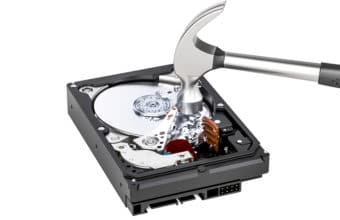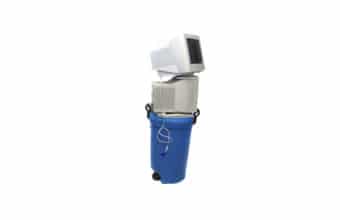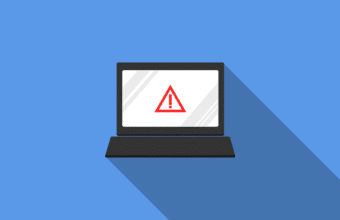Data Security
-
5 Important Steps to Take after a Data Leak
Data breaches are a major headache for businesses and consumers alike. Consumers are naturally impacted by issues like stolen personal data and identity theft. As a business owner, you have an ethical and legal obligation to protect consumer privacy and safeguard the confidential information your customers provide you with. Even with measures in place to […]
read more -
Choosing the Right Data Destruction Method
When electronic equipment is no longer needed, destruction of the data contained is critical, and often required. With the highly advanced recovery techniques of today, data can be easily recovered from devices that have been improperly wiped or destroyed. Many companies make the choice to utilize in-house resources for data erasure and destruction, but if […]
read more -
5 Ways to Destroy a Hard Drive
The fear with modern social media is that even when you delete posts, they still remain somewhere, floating in the cloud until they come back to haunt you. Similar fears need not plague you when it comes to business data. If you destroy data properly, you can make sure its gone for good, and this […]
read more -
New Data Breach Law in South Dakota
As of this month, every state in the U.S. now has a data breach notification law. Just yesterday, South Dakota‘s first ever data breach notification law went into effect (July first). What do South Dakota Businesses Need to Know (The Takeaways) Personal Information and Protected Information Defined: “Personal Information” consists of a person’s first name or first […]
read more -
Why You Shouldn’t Throw Old Electronics in the Trash
We live in a disposable culture. For convenience, we have all kinds of disposable goods, from bottles and straws, to plates and cups, to Q-tips and diapers. Even our electronics can seem disposable at times. Instead of fixing old televisions or toasters, we simply get rid of them and upgrade to something newer and better. […]
read more -
What Should be Included in Your IT Equipment Disposal Policy?
IT equipment is not cheap, but it has become an essential part of conducting business, encompassing everything from communications to secure record-keeping. It allows businesses to interact with customers, carry out secure transactions, and store essential data for future use. Of course, if mishandled, this equipment can also become a major liability. This is why […]
read more -
What is the Disposal of an Asset?
We’ve all become used to high-level data breaches. Over the last few years, we’ve seen retail stores like Best Buy and Target succumb to data breaches that compromise sensitive consumer data, along with health insurance providers like Anthem, credit reporting services like Equifax, and even government agencies. If you think that these breaches only affect […]
read more -
Types of Data Breaches (Not from Hacking)
When it comes to data breaches, the odds are stacked against us, especially for highly regulated businesses. According to Ponemon, data breaches cost organizations in the U.S. an average of $225 per record compromised. More heavily regulated industries experience higher costs. Healthcare tops the list at $380 per capita, followed by financial services ($336), services […]
read more -
How to Properly Manage Security Threats at Law Firms
While all businesses have legal and ethical obligations to secure consumer data, some industries must also work to protect additional information provided by their clientele. Law firms, in particular, are inundated with information that falls under the protection of attorney-client privilege, which means it must be kept confidential. In other words, law firms have to […]
read more














